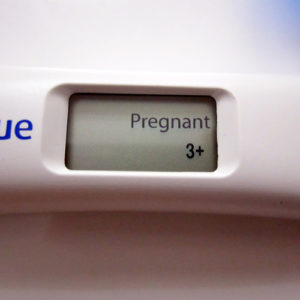Following a vegan diet means excluding all animal products, including meat, fish, eggs and dairy. With around 600,000 vegans in the UK, many women wonder if it’s safe and healthy to continue this diet during pregnancy. The good news is that with careful planning, it’s perfectly possible to have a healthy vegan pregnancy.
What Is A Vegan Diet?
Vegans avoid consuming or using any products derived from animals. This means no meat, fish, dairy foods or eggs. A vegan diet consists solely of plant-based foods – vegetables, fruits, grains, nuts and anything made from these ingredients. Going vegan is becoming more and more popular, with 1.16% of Brits now following a vegan diet.
Is It Safe To Be Vegan When Pregnant?
Yes, you can safely remain vegan during pregnancy. The key is making sure you eat a varied, balanced diet that gives you adequate nutrition for you and your growing baby. Some nutrients like protein and calcium are limited in plant-based diets, so vegans need to make a special effort to include sources of these. Supplements are often necessary too. As long as you make nutrition a priority, there’s no reason you can’t have a healthy vegan pregnancy.
Some women worry that abstaining from animal products will mean missing out on key nutrients for their baby’s development. However, with the variety of plant-based foods available today, it is possible to get all the protein, vitamins and minerals you need on a vegan diet. The trick is focusing on whole, minimally processed foods.
For example, calcium is readily available from dark leafy greens, broccoli, beans, lentils, tofu and fortified plant milks. Zinc can come from whole grains, nuts, seeds, legumes, tofu and nutritional yeast. Iron is plentiful in lentils, spinach, pumpkin seeds and raisins. Essential fatty acids are provided by walnuts, flax, chia and hemp seeds.
With some guidance from your doctor or midwife, you can plan well-rounded vegan meals and snacks that give you energy and nourishment for yourself and your growing baby. Take care to minimize processed vegan meats and cheeses, which tend to be high in sodium and additives. Focus on getting nutrients from real, whole foods as much as possible for optimal health.
Key Nutrients For A Vegan Pregnancy
Iron
Iron deficiency can lead to anaemia, which is common in pregnancy. Good vegan sources include wholemeal bread, dark leafy greens like spinach and broccoli, pulses, legumes, dried fruit and iron-fortified cereals. To maximize iron absorption from plant sources, try pairing iron-rich foods with vitamin C-rich ingredients like citrus fruits or bell peppers – this clever combo can boost iron absorption by up to 300%.
Vitamin B12
This vitamin is limited in plant-based diets, so vegans may need supplements. Some options are fortified cereals, plant-based milks and yeast extract spreads.
Since vitamin B12 is not available from plant sources, vegans need to be extra mindful of getting this essential nutrient. Deficiency can cause serious health issues for you and your developing baby.
Some easy ways to add B12 to your diet include:
- Opting for a fortified plant milk like soya or almond milk that has been fortified with B12. Check the label and choose one providing at least 1mcg per serving.
- Choosing a fortified breakfast cereal, again checking the label for B12 content. Marmite and other yeast extracts spread on toast also provide some B12.
- Taking a daily B12 supplement providing at least 10mcg. Look for a vegan-friendly version.
- Adding a serving of nutritional yeast to dishes like soups, salads and pasta. This deactivated yeast is a source of vitamin B12 providing around 4mcg per tablespoon.
- Drinking fortified juice or plant-based protein drinks which have added B12.
Consuming 2-3 good sources of B12 each day, either through fortified foods or a supplement, helps ensure you meet the higher recommended intake for pregnancy and breastfeeding of at least 2.6mcg. Being vigilant about your B12 intake safeguards you and your baby.
Vitamin D
Vitamin D maintains calcium levels needed for you and baby’s bone health. Our main source is sunlight, but foods like fortified cereals and spreads contain it too. Still, most people need supplementation. For expecting vegan mums, spending 15-20 minutes in the midday sun (while wearing sunscreen!) can help boost your natural vitamin D production.
Calcium
Dairy is the main source of calcium for non-vegans. Vegans can get it from dark green veg, pulses, fortified plant-based milks, tofu, sesame seeds and dried fruit. A lesser-known but excellent plant-based calcium source is blackstrap molasses – just one tablespoon provides 20% of your daily calcium needs!
Aside from these key nutrients, eating a diverse diet with whole grains, nuts, seeds, beans, lentils, fruits and veggies can provide the carbs, protein, healthy fats and other vitamins and minerals you need.
Supplements
Taking supplements helps fill any nutritional gaps. The UK Department of Health recommends all women trying to conceive and during the first 12 weeks of pregnancy take 400μg of folic acid daily to reduce risk of neural tube defects like spina bifida. Research also suggests taking vitamin B12 with folic acid can further decrease this risk. Since B12 comes mostly from animal foods, supplementation is especially important for vegans.
Tips For Eating Vegan During Pregnancy
- Let your midwife know you are vegan so they can advise you and answer questions.
- Take a specially formulated vegan pregnancy supplement to provide missing nutrients.
- Eat plenty of folate and iron rich foods like green veggies, pulses and fortified cereals.
- Include sources of plant-based protein like lentils, tofu and nuts with each meal.
- Try to eat calcium-rich foods like sesame seeds, kale and fortified plant milks every day.
- Check food labels for added vitamins and choose fortified foods where possible.
- Ask your midwife to check your iron and vitamin D levels, and supplement accordingly.
- Talk to a nutritionist if you need help balancing your diet.
- Drink plenty of water and watch your fibre intake to avoid constipation, which is common in pregnancy.
Healthy Vegan Eating In Pregnancy
With some effort, planning and possible supplements, it’s certainly possible to get all the nutrition you need from a vegan diet during pregnancy. Aim to eat a well-rounded selection of fruits, vegetables, whole grains, nuts, seeds and plant-based protein and calcium sources each day. Stay in touch with your midwife and doctor and don’t hesitate to ask questions. With the right care and diet, you can have a healthy pregnancy while sticking to your vegan principles.
Here are some examples of healthy vegan meals and snacks to enjoy while expecting:
Breakfast: Oatmeal made with fortified plant milk, topped with fruit, nuts and seeds. Or peanut butter toast with sliced banana. Fortified whole grain cereal with plant milk and blueberries.
Lunch: Lentil vegetable soup. Chickpea salad sandwich with vegan mayo. Buddha bowl with quinoa, roasted veggies, avocado and hummus.
Dinner: Tofu veggie stir fry with brown rice. Vegan lentil shepherd’s pie. Falafel wraps with lettuce, tomato and cucumber.
Snacks: Trail mix with nuts, seeds and dried fruit. Smoothie with plant milk, spinach and banana. Rice cakes topped with almond butter. Vegetable sticks with hummus. Overnight oats with chia seeds and plant milk.
Dessert: Fruit salad with mint. Vegan chocolate avocado mousse. Banana “nice cream” made from frozen bananas in a blender. Baked apples with cinnamon and raisins.
With a little creativity, you can enjoy tasty plant-based meals that will nourish you and your baby while upholding your vegan diet. Discuss any cravings or nutritional concerns with your midwife. They can suggest vegan-friendly ways to satisfy them.
Photo by Neal E. Johnson on Unsplash
Zoom Baby is a leading supplier of Pregnancy Tests and Ovulation Test Kits





